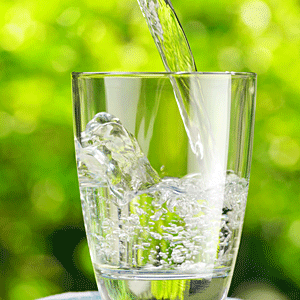
Cooking and drinking water must be of good quality in order to ensure our health.
Ideally, drinking water must taste good, be clear and odorless, and contain the right amount of mineral salts. It should also be free of harmful substances, such as heavy metals, nitrates, or bacterial or viral agents which may pose an infection risk.
Most of the naturally occurring potable water is groundwater, which is unpolluted. The water deep in the earth rises to the surface to form springs or is taken from the aquifers by digging wells.
Special treatments make water drinkable
In order to satisfy the needs of the population, mankind has had to make the water from rivers and lakes drinkable by means of special treatments such as disinfection, sedimentation and filtration. The water is then pumped into special tanks and delivered to our homes.
Contaminants in drinking water
There are a number of contaminants that may be contained in water. These include:
- Micro-organisms such as bacteria, parasites and viruses. Most bacteria and parasites are killed by chlorine in treatment stations, but viruses are much more resistant and difficult to eliminate.
- Toxic minerals, such as aluminium, arsenic, asbestos, barium, chromium, fluorine and nitrates as well as cadmium, lead and mercury could all be in tap water. These are usually found in very small quantities, but pollution caused by mining and industry may lead to an increase of these minerals in the water.
- Organic substances such as animal waste, fertilisers, pesticides, oil, dyes and paints may be present in municipal water supplies.
- Radioactive substances (uranium and radioactive gases) in small amounts are found even in the cleanest water sources.
- Residuals of chemicals used to treat water are also present.
- Microbe contamination may be caused by the accidental entry of contaminants along the water distribution system or in water used for cooking foods.
Contaminated water and diseases
Contaminated water may transmit diseases, such as cholera, typhoid fever or hepatitis A. Bacteria are transmitted when the water is drunk or are present on raw vegetables or contaminate solid foods.
(Source: World Health Organisation )




 Publications
Publications
 Partners
Partners










